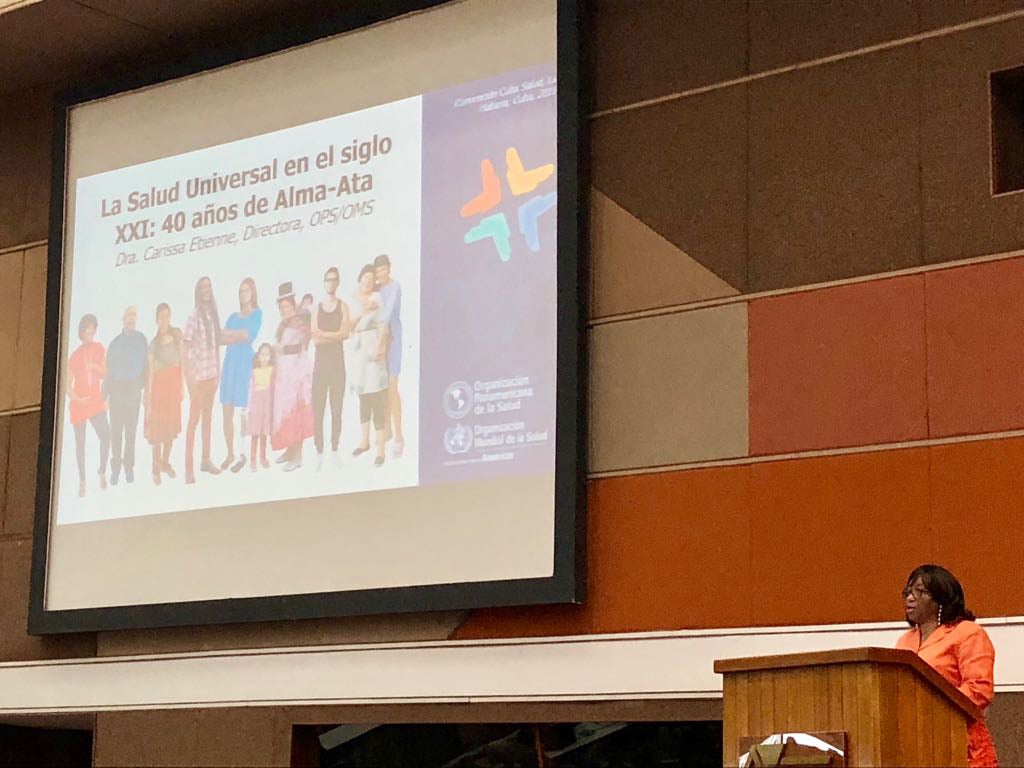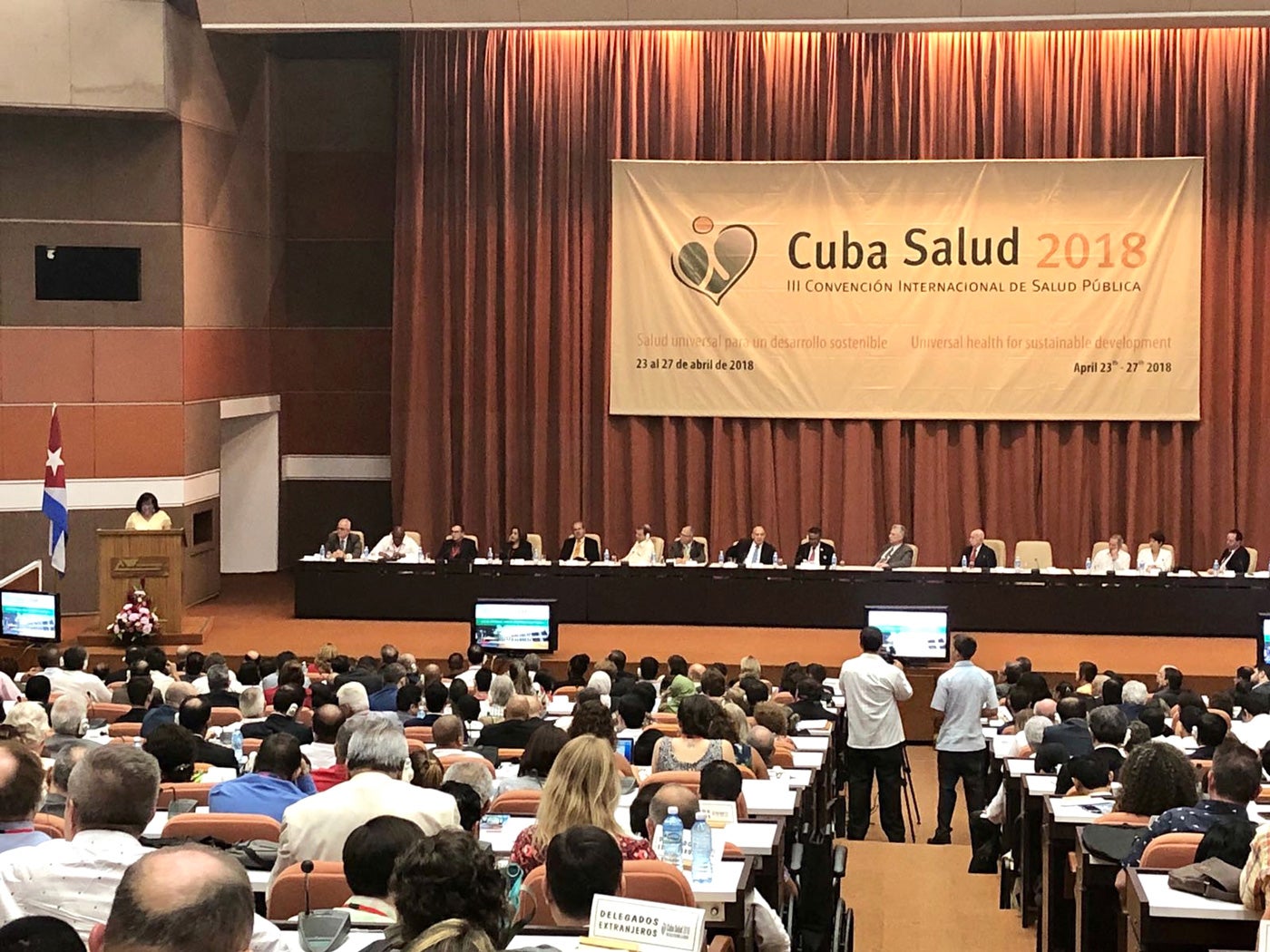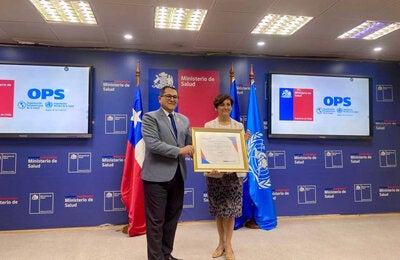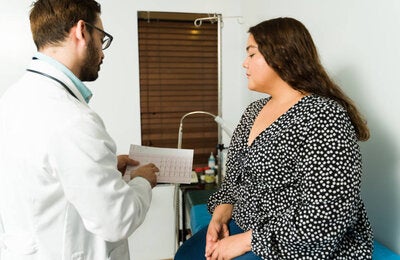Havana, Cuba, April 24, 2018 (PAHO / WHO) -The Pan American Health Organization (PAHO) has urged countries to improve access to health care in order to prevent 600,000 deaths per year in the Americas, one of the most inequitable regions in the world.
"Today, more than a third of the region's inhabitants lack access to comprehensive, quality health care," said the Director of PAHO, Carissa F. Etienne, during the inauguration of the III Cuba-Salud International Convention 2018 , which takes place until April 27, under the theme "Universal Health for Sustainable Development".

The new Cuban president, Miguel Díaz Canel; the deputy minister of State; the Cuban Minister of Health, Roberto Morales Ojeda, and the Director General of the World Health Organization (WHO), Tedros Adhanom Ghebreyesus, also participated in the opening ceremony of the convention, which brought together delegations from 67 countries.
Data reveals that between 2013 and 2014 more than 1.2 million deaths in the Americas could have been avoided through equitable access to quality, timely health care services. This situation "is directly related to the persistent levels of social exclusion that result in profound inequities in health," said the Director of PAHO. In the region, 29% of the population lives below the poverty line and 40% hold less than just 15% of the region's total wealth
Progress and challenges towards universal health
Forty years after the Alma-Ata Declaration, upon which the values and principles of primary health care are based, including those implemented in Cuba "PAHO's universal health strategy will be a crucial part of achieving health for all in the 21st century," said Etienne.
"While countries in the region have made great strides, we still have far to go if we are to overcome the barriers that prevent access to health for all, including the geographical, institutional and financial barriers, as well as those related to social inequalities such as gender and ethnicity."

"It is totally unacceptable that we have data showing us that for children from indigenous ethnic groups, the infant mortality rate is up to five times higher than that of the general population," added Etienne. "Health systems must place the individual, their family and their community at the front and center of actions," she said.
On the other hand, Etienne also emphasized that access to health services alone is not enough. "Human development policies must also be put into place to improve the social and environmental determinants that impact health, including poverty, hunger, gender equality and lack of access to education, clean water and sanitation.
The director of PAHO also called for more intersectoral collaboration. "Cuba-Salud "is a great opportunity to learn, exchange and renew the commitment to universal health for everyone, everywhere, without leaving anyone behind."
The Cuban model
During the opening ceremony of the Convention, Dr. Tedros, the Director General of WHO, highlighted the Cuban health system as a model for countries all over the world. "The Cuban health care system shows that universal health is not just an aspiration but a possibility." Dr. Tedros also emphasized WHO's goal to ensure access to health care for one billion people by 2030. "It is an ambitious goal, but we have to be ambitious if we do not want to leave anyone behind," he said.
During the Convention, the Cuban Minister of Health gave a keynote address on universal health for sustainable development in Cuba. There, he outlined the primary characteristics of the Cuban health system and highlighted the advances that have occurred "thanks to the accessibility of health care and the system's emphasis on free coverage, preventative care, community care, intersectoral working, international collaboration and scientific innovation.".
Morales Ojeda also highlighted that Cuba has managed to eliminate 14 infectious diseases, reduce infant mortality to 4 per thousand live births, and that the country was the first in the world to eliminate mother-to-child transmission of HIV and syphilis. He also emphasized that Cuba's public health and social assistance budget represents 27% of the total State budget and 11% of the Gross Domestic Product (GDP).
The primary aim of Cuba-Salud is to discuss global and regional health issues, as well as the Cuban model, within the context of country commitments to the 2030 Sustainable Development Agenda. Topics to be discussed during the five-day event include: the safety and quality of medical care; emerging and re-emerging diseases; efficient and sustainable health systems, international cooperation in health; and the study of medicine, among others.
Links
- PAHO / Cuba
- Universal Health



